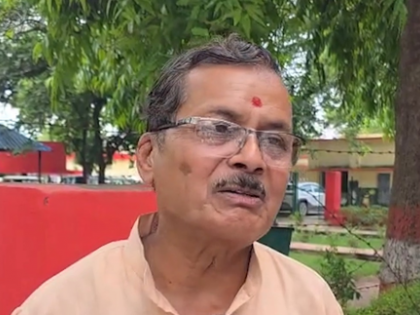50 years of Emergency: Survivors recall torture, arrests and suppression of freedom
By IANS | Updated: June 23, 2025 20:23 IST2025-06-23T20:19:19+5:302025-06-23T20:23:43+5:30
New Delhi, June 23 New Delhi, June 23 As the country marks 50th anniversary of the Emergency ...

50 years of Emergency: Survivors recall torture, arrests and suppression of freedom
New Delhi, June 23 New Delhi, June 23 As the country marks 50th anniversary of the Emergency imposed by then Prime Minister Indira Gandhi on June 25, 1975, painful memories of brutal repression, muzzling of voices and stifled freedom continue to haunt the survivors.
Several survivors, from the across the country, who were imprisoned during the time of Emergency period (1975-1977) spoke to IANS, sharing their painful experiences and suppression with brute force.
In Mathura, senior Rashtriya Swayamsevak Sangh (RSS) worker Vijay Bahadur Singh recalled how the Emergency stripped people of their basic freedom.
“It was a time when even writing or printing anything without the District Magistrate’s permission was a crime. Press was muzzled, and voices were silenced,” he said.
Singh, who participated in a satyagraha against the government, claims that he was arrested and subjected to custodial torture.
“They asked about Dinesh ji, our district pracharak. When I refused, they tortured me. My nails were pulled with a plier and I was beaten with sticks, ” he recounted.
In Chandauli, another former detainee, Harbansh Singh, now a respected local leader, described how he was inspired by socialist leader Raj Narayan and took to the streets against the Emergency.
“I spent 14 months in jail. I completed my intermediate exams from prison. After my release, I contested and won the election for president of the Municipal Inter College,” he said.
He also recalled being on the run from police, and finally getting arrested from Mughal Sarai station during an event attended by then Railway Minister Kamalapati Tripathi.
In Bareilly, Virendra Kumar Atal, who was jailed during the Emergency, demanded official recognition for the sacrifices made.
“I urge Prime Minister Modi and Home Minister Amit Shah to grant Emergency detainees, the status of freedom fighters. We too fought for democracy,” Atal said, standing at the very ground where he was arrested in 1975.
These voices echo a common sentiment that the Emergency was a dark chapter in India’s democratic journey, one that saw mass arrests, suppression of dissent, and a total breakdown of civil liberties.
As India prepares to mark 50th anniversary of the dark era, the survivors are not just remembering their trauma—they are seeking justice and state acknowledgement of their sacrifices.
Disclaimer: This post has been auto-published from an agency feed without any modifications to the text and has not been reviewed by an editor
Open in app